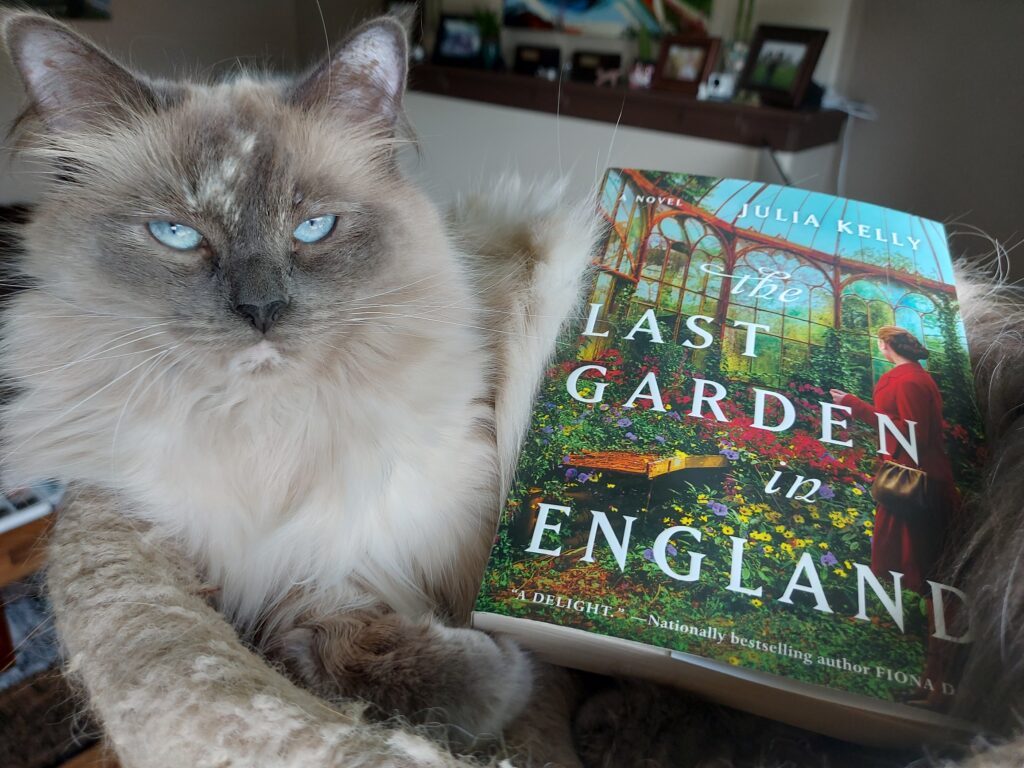The Last Garden in England by Julia Kelly

The Last Garden in England is the perfect novel if you are looking for something low conflict, and where all the characters get a happy ending. If you are a fan of Kate Morton’s novels, then you will most likely enjoy this one. It kind of reminded me of Morton’s The Forgotten Garden, except Morton’s stories have a darker edge to them. The Last Garden in England has an okay story, but it really is not engaging due to its predictability and because the author only skims the surface of the issues the characters face.
The Last Garden in England is about a woman named Emma who is hired by the owners of Highbury House to restore the gardens to how they were originally designed by famed landscape designer, Venetia Smith. The only problem is that there is not much information about Venetia’s original designs readily available, so Emma starts poking into the past and uncovers certain secrets about Highbury House.
The novel is also told from the perspective of Venetia when in 1907 she is hired by the Melcourts, a newly wealthy family who made their money in trade, to do the landscape design at their country home, Highbury House. Mrs. Melcourt is a snob who looks down on Venetia even though Venetia is a gentleman’s daughter, and she does not like seeing her brother, an amateur botanist, become attached to Venetia. It does not take much effort to figure out where Venetia’s story is going.
The novel also takes place in 1944, during WWII, with the current owner of Highbury House, Diana, mourning the death of her husband who was killed in action while her home has been requisitioned for the war effort and turned into a hospital for wounded soldiers. She does her best to keep the landscape designed by Venetia intact, even though most of it is turned over to farming during the war. The 1944 timeline also features the perspectives of Stella, who works at Highbury House as a cook and suddenly finds herself taking care of her nephew, and Beth, who works at a neighbouring farm as a Land Girl, becomes friends with Stella and falls in love with a soldier who is convalescing at Highbury House. Beth’s story is perhaps the most superfluous of them all and the least necessary to the present timeline.
My biggest problem with The Last Garden in England, though, is that most of these women’s stories are dependent on men or children. I feel that we have finally reached a time when a woman’s life should not have to be tied to a man or a child, and it is disappointing that the author does not put much effort into exploring other possibilities for women.